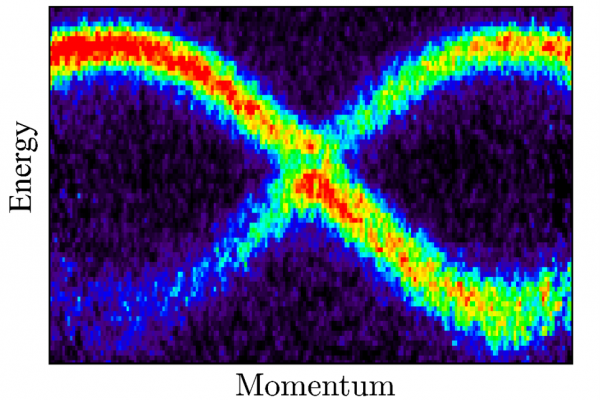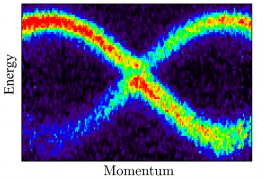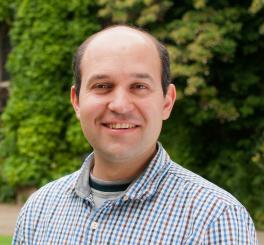
Experimental exploration of Dirac magnons and excitons in a honeycomb magnet
Prof. Radu Coldea
Oxford University
Watch the recording here
Faculty Host: Rolando Valdés Aguilar

Abstract:
Complementary to studies of symmetry-protected nodal points for electron bands in single-layer graphene, we explore analogous physics for propagating bosonic magnetic quasiparticles in a honeycomb magnet. Using inelastic neutron scattering we observe the presence of linear band-touching points in the magnetic dispersions with characteristic periodic intensity modulations in the dynamical structure factor around the nodal points. We also resolve an unexpected spectral gap at low energies, which cannot be explained semi-classically, and propose possible mechanisms based on quantum fluctuations and spin-orbital exchange.
M. Elliot, P.A. McClarty, D. Prabhakaran, R.D. Johnson, H.C. Walker, P. Manuel and R. Coldea, Nature Communications 12, 3936 (2021), https://www.nature.com/articles/s41467-021-23851-0
Order-by-disorder from bond-dependent exchange and intensity signature of nodal quasiparticles in a honeycomb cobaltate

More about Prof. Coldea:
Radu Coldea received his doctorate in physics from Oxford University and held postdoctoral positions at Oak Ridge National Laboratory (USA) and Rutherford Appleton Laboratory (UK), before joining the University of Bristol (UK) as faculty, and then returning to Oxford, where he is currently Professor in the Physics Department, and Walter Stern Fellow at Lincoln College. His current research interests are focused on using neutron and x-ray scattering to explore “emergent” behavior in quantum materials, where strong electron interactions and quantum correlation effects lead to electrons acting together “in unison” with new properties that are different from the result of adding together the behavior of individual, un-correlated electrons. His selected awards include the EPSRC Advanced Research Fellowship, the BTM Willis Prize for Neutron Scattering from the Institute of Physics and the Faraday Royal Society of Chemistry (UK), and a European Research Council Advanced Grant award. For more information on the research in Radu Coldea’s group see https://www.physics.ox.ac.uk/research/group/quantum-magnetism-and-quantum-phase-transitions.
